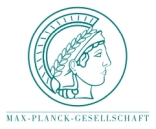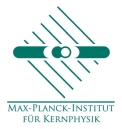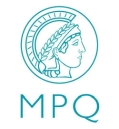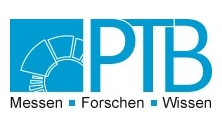Max Planck-RIKEN-PTB Center for
Time, Constants and Fundamental SymmetriesGroup of Tanja E. Mehlstäubler, Institute for Experimental Quantum Metrology, PTB, Braunschweig
Center Research Topics
- Advanced ion traps and ion manipulation techniques
- Optical and XUV clocks based on highly charged ions
- Transportable optical clocks
Tanja E. Mehlstäubler's Institute for Experimental Quantum Metrology Website ![]()
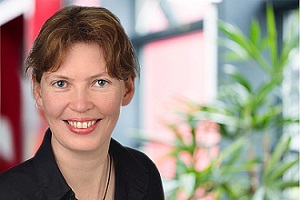
Prof. Dr. Tanja E. Mehlstäubler is a world-leading expert in precision optical spectroscopy. In her early career she studied francium and magnesium neutral atoms in a magneto-optical trap and investigated novel cooling methods for a Mg-based optical frequency standard. During her PostDoc at LNE-SYRTE in France, she brought her interests in quantum sensing to the cold atom gravimeter. Following another PostDoc with the Yb+ ion clock at PTB, she invented the idea of the "multi-ion" optical clock unifying the superb experimental control of single ions and the high signal-to-noise ratio of multiple quantum absorbers, as was previously only available in optical lattice clocks. In 2009, Tanja Mehlstäubler joined the QUEST Institute for Experimental Quantum Metrology at PTB, where she established her own research group. Since then, she develops high-precision scalable and integrated ion traps enabling 3D optical access for coherent laser manipulation and clock interrogation. With ion Coulomb crystals at hand, Tanja Mehlstäubler is fascinated by the complexity of the thermodynamics in such many-body systems. The physics of solitons and topological defects arising in 2D and 3D Coulomb crystal structures is just one of the pillars of her work group "Quantum Clocks and Complex Systems" at PTB. Furthermore, she is leading the multi-ion In+/Yb+ composite clocks experiment and is testing the limits of fundamental physics in engineered quantum systems.
Some of Tanja Mehlstäubler's achievements are:
- Highest accuracy in the determination of the strongly-forbidden octupole transition in 172Yb+ [Phys. Rev. Lett. 125, 163001 (2020)]
- First simultaneous mapping of 3D excess micromotion in an ion Coulomb crystal with time dilation shifts close to 1 x 10-19 [Phys. Rev. Appl. 11, 011002 (2019)].
- Probing of nanofriction and Aubry-type signatures in ion Coulomb crystals [Nat. Commun. 8, 15364 (2017)]
- Observation of topological defects and spontaneous symmetry breaking in ion Coulomb crystals [Nat. Commun. 4, 2291 (2013)]
Inspiring young researchers:
Tanja Mehlstäubler teaches as a full professor at Leibniz University of Hanover and as a guest professor at Osaka University in Japan.
Her lectures range from atomic physics and quantum optics on the Master level to special courses on quantum metrology and quantum
sensing. Tanja Mehlstäubler is regularly invited to international schools and colloquia, where she particularly enjoys the personal
exchange with young scientists. At PTB, she is the host of the "MetroSommer", which offers a summer internship to Master students
enabling a unique frontline insight into PTB's manifold research environment. Within the past 13 years, Tanja Mehlstäubler has
attracted young researchers from all over the world to join her international and diverse research group. She supervised more than
12 master, 13 PhD students and 11 PostDocs, who have started successful careers in industry and academia.
International recognition:
Tanja Mehlstäubler received her PhD degree with distinction (summa cum laude). During her studies she was member of the
"Studienstiftung des deutschen Volkes" and won a prestigious Fulbright grant. She is frequently invited to give colloquia and
presentations at national and international scientific conferences and schools (in total more than 100 in the last 10 years).
Tanja Mehlstäubler's more than 44 refereed publications acquired an h-index of 22. She is member of the executive and science board
of the excellence cluster "Quantum Frontiers" and of the board of the Institute of Quantum Optics at LUH. Until 2021 she was member
of the Editorial Board, European Physics Journal D, Springer/Nature, Germany/UK. In her activities in CRCs, she is leader of the
Research Unit B06 "Precision Test for Fundamental Physics" in Quantum Frontiers and leader of the Topical Group "Time & Frequency
Metrology" in DQ-mat. Furthermore, she is member of the focus group on quantum technologies of the DIN/CENELEC and since 2020 she
is elected member of the review board of the Deutsche Forschungsgemeinschaft (DFG). Tanja Mehlstäubler has organized and co-organized
international conferences and workshops, including the international conference on "Quantum Metrology and Physics beyond the Standard
Model" in 2019, workshops on "Dynamics of Coulomb Crystals" and she is acting as member of the science board of EFTF since 2020.
Along this line, she is organizer of the Sino-German Frontiers of Science Symposium (SINOGFOS) of the Alexander von Humboldt
foundation. Tanja Mehlstäubler is a regular referee for Nature, IEEE, the Physical Review journals, and many others.
